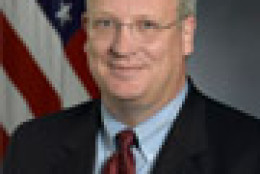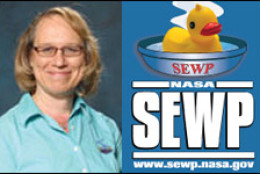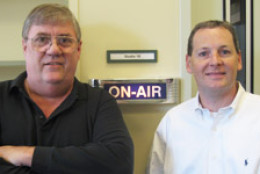Contracts/Awards
-
John Newby, commissioner of the Virginia Department of Veterans Services, joins host Roger Waldron to discuss what his agency is doing to help returning veterans who are transitioning to the civilian work force. March 24, 2015
March 24, 2015 -
25 percent of the federal contracting workforce has less than five years of experience. And there are ten times more contracting employees over 50 years old than under 30. Dave Wennergren is senior vice president for technology at the Professional Services Council. On In Depth with Francis Rose, he said those splits between age and experience mean your agency's not using innovative solutions you already have.
March 24, 2015 -
Larry Allen, president of Allen Federal Business Partners, joins host Mark Amtower to discuss the top procurement issues in 2015, and how they are impacting contractors. March 23, 2015
March 23, 2015 -
Small businesses could soon compete for contracts in more industries, according to a new bill from House Small Business Committee Chairman Steve Chabot (R-Ohio). He introduces the Small Contractors Improve Competition Act. It's looking at industries that don't do much government business and ways to attract those small businesses to compete. It also sets an annual small business goal for each agency. Federal News Radio Executive Editor Jason Miller tells In Depth with Francis Rose about the bill and how it could impact your agency.
March 23, 2015 -
Two huge steps could go a long way toward healing the frustration taxpayers have with agencies and vendors, says Federal News Radio's Francis Rose in a new commentary.
March 23, 2015 -
A new bill from the House Small Business Committee chairman would require SBA to develop a new methodology to measure how effective agencies are in ensuring small firms receive prime and subcontracts awards.
March 20, 2015 -
Joanne Woytek, program manager for NASA SEWP, joins host Roger Waldron to discuss the performance of NASA SEWP IV, and what's ahead with NASA SEWP V. March 17, 2015
March 17, 2015 -
Under a new agreement, GSA would reduce the Army's fee to use the professional services governmentwide acquisition contract to 0.1 percent from 0.75 percent. This is the second major MOU signed by GSA and a military service.
March 17, 2015 -
Kevin Plexico, vice president of Information Solutions at Deltek, discusses FSSI, small business contracting, and more with host Mark Amtower. March 16, 2015
March 16, 2015 -
The Treasury Department's inspector general reviewed a recent Veterans Affairs IG report and concluded the actions of a former VA acquisitions official "did not violate applicable law."
March 16, 2015 -
Some fresh, new and big federal contracting opportunities are coming. The biggest will be the $60 billion Alliant Two deal, a government-wide acquisition contract the General Services Administration is cooking up. That's according to Bloomberg Government. B-Gov has published its latest list of the top 20 upcoming vehicles. There are the ones contractors simply must have places on. Bloomberg senior analyst Kevin Brancato joined Tom Temin on the Federal Drive with more on the list.
March 16, 2015 -
The Congressional Budget Office recently revealed that it didn't have any comprehensive information about the size of the federal government's contracted workforce. Jeff Neal, senior vice president of ICF International and former chief human capital officer at the Department of Homeland Security, says knowing that number might not matter too much to taxpayers in the long run.
March 13, 2015 -
One of the most dangerous things that can happen to us in our business career is to make the mistake of stereotyping our adversary, says contracting expert Tim Sullivan. This commentary is the final installment of the 10-part series, 10 Commandments for Government Contractors.
March 11, 2015 -
Pre-judging an opponent is a sure path to making a mistake in contract negotiating. That's according to Tim Sullivan, a partner at the law firm Thompson Coburn. He's also authored the blog, "A Government Contractor's 10 Commandments." On the Federal Drive with Tom Temin, he tackled the 10th and final commandment: You shall not stereotype your opponent. That's one of the biggest mistakes a contractor can make.
March 11, 2015 -
Military contractor requirements seem simple enough: Get the right material to the right location on time. Some contractors are better at it than others. It's true that you get what you measure, which is why the military branches have the Contractor Performance Assessment Reporting System (CPARS). They use it to create an incentive program to spur on suppliers. Bobby Smart, the Air Force's deputy assistant secretary for Acquisition Integration, joined the Federal Drive with Tom Temin to explain how the system works.
March 11, 2015










